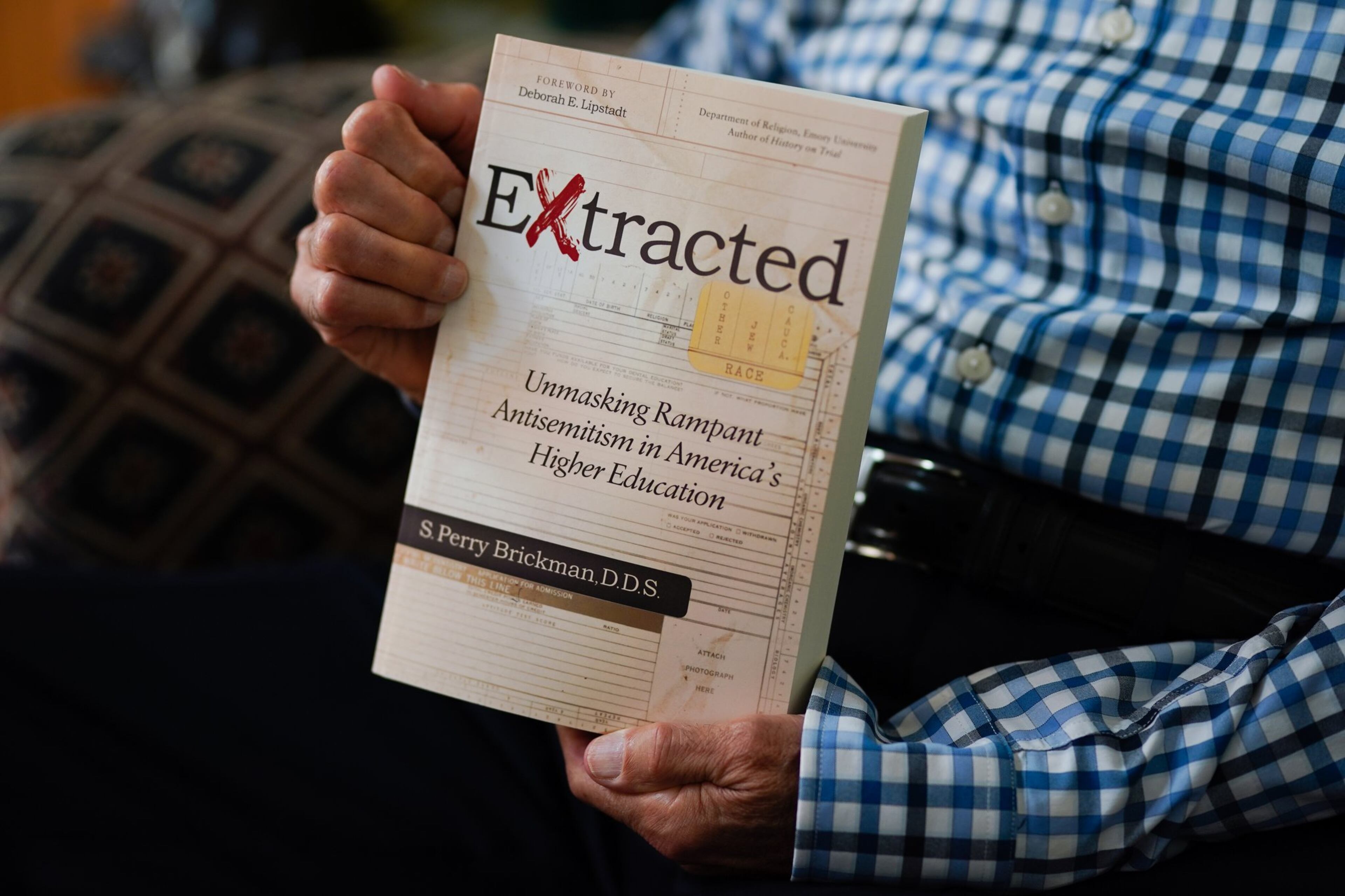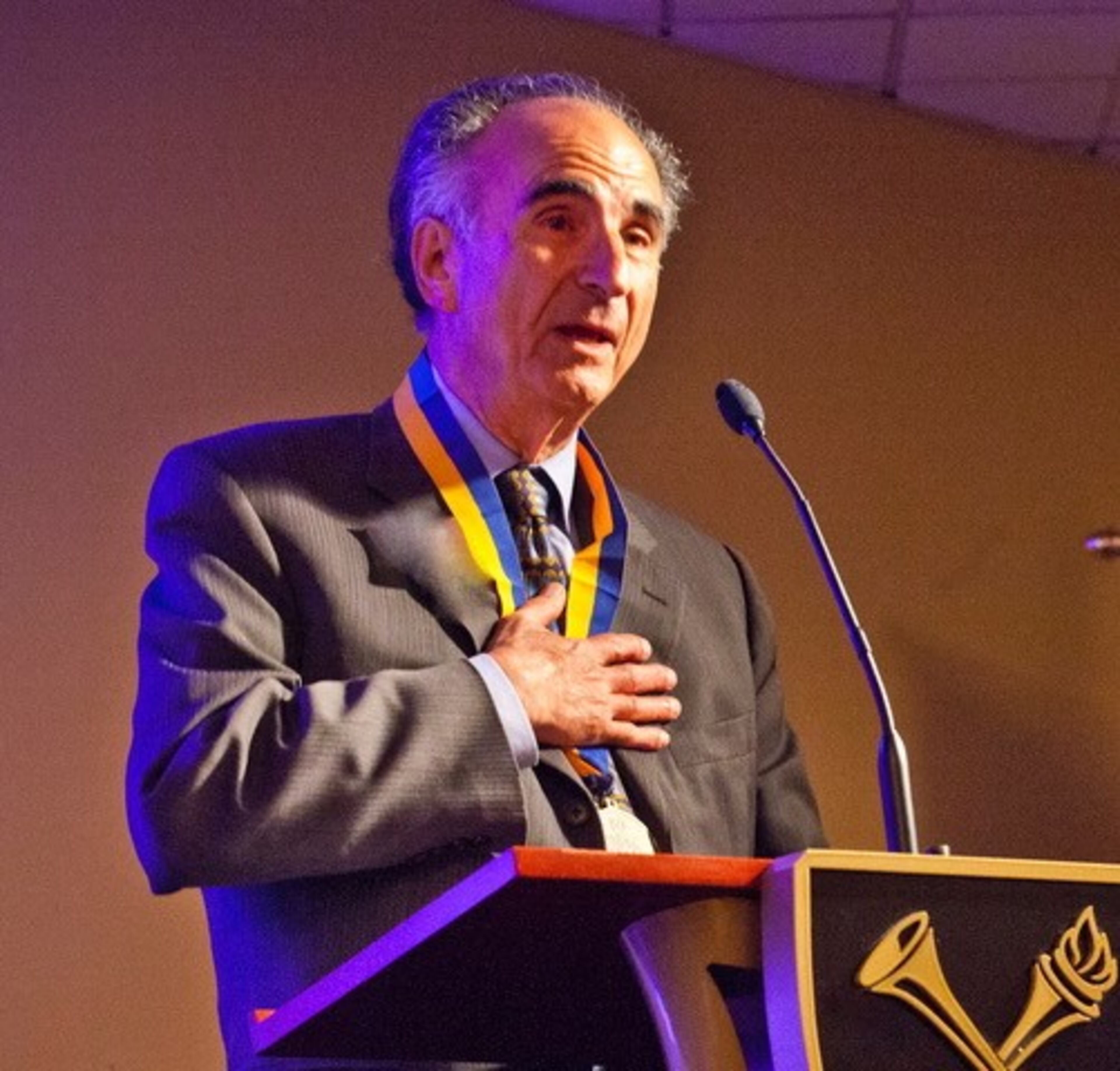Perry Brickman’s book tells hidden truth: Jews were forced out of Emory

In 1954, at the end of his freshman year at Emory University’s dental school, Ronald Goldstein was called into the office of Dean John E. Buhler, who told him he was on the verge of failing.
“I flunked 19 of your classmates,” Goldstein recalls Buhler saying, “and you’re the 20th. I don’t know what to do here, I’m debating what to do with you.”
“Dean,” said Goldstein, “I know that my grades don’t show exactly how well I was doing, but that’s up to you, you do what you want.”
“You’re right on the curve,” said Buhler, “I could flunk you or pass you, but to tell you the truth, I don’t know why you Jews want to be dentists. You don’t have it in your hands.”
Goldstein didn’t flunk out. He was among the few Jewish students at Emory in the 1950s who graduated after four years of study.
But most of Emory’s Jewish students did the opposite. While the failure rate of non-Jewish dental students in that era was 15.4 percent, 64.5 percent of Jews either failed or were required to repeat a year.
Dr. Goldstein, one of Atlanta's best-known celebrity dentists, became the first interview in a five-year investigation by retired oral surgeon Dr. Perry Brickman. In his deeply-researched book "Extracted: Unmasking Rampant Antisemitism in America's Higher Education," Brickman demonstrates that under Buhler, the dental school at Emory did everything it could to push Jews out of the program. On Sept. 9 Brickman will preside at a book-signing hosted by Emory, the school that once failed him.

“As I entered Emory Dental school in September, 1951, little did I know that my three Jewish classmates and I had almost no chance at success,” Brickman wrote, “and that the majority of the Jewish boys who followed us over the next ten years would fare no better.”
It wasn’t until 54 years after flunking out that Brickman, having retired from a successful career as an oral surgeon, stumbled onto the truth.
In 2006 Brickman and his wife Shirley were invited to an exhibit at Emory's Woodruff Library, curated by Eric Goldstein, director of the Emory's Tam Institute for Jewish Studies. It was called "The History of Jews at Emory," and along with the favorable vignettes, it reported on instances of anti-Semitic activity at the school. That section included a chart, created by the Anti-Defamation League in 1961, that showed the same statistics quoted above: Jewish dental students were failed at grotesquely inflated rates.
Brickman had long suspected that he was targeted because of his religion. This was a “smoking gun.”
“When I saw it, even though I was in a library, I wanted to scream,” he said recently. “I was shaking.”
For him, that smoking gun became a starting gun. Brickman is a trim 86. Retired from a long career as an oral surgeon, he remade himself into a sleuth and an amateur historian. First, he traveled around the country, interviewing his former classmates who recounted their own experiences. Many of them had never talked about failing before, even to their wives and children.
“We were humiliated so much, we just tucked our tail between our legs and moved on,” said Brickman.
Teaching himself video production, he made a 56-minute film of those interviews, which he took to Emory in 2011. The response from the school's administration surprised him. Emory apologized.

On Oct. 10, 2012, the school invited Brickman and many of his former classmates to the Woodruff Library.
President James Wagner addressed an overflow crowd of 400, and said “I am sorry. We are sorry. We know that Emory can never totally repair the impact that discrimination had on Jewish dental students more than half a century ago, but we can use the opportunity provided by Dr. Brickman’s research to reflect on these events in ways that make us more vigilant.”
It was an extraordinary act of contrition. Heartened, Brickman decided to turn his research into a book. “Extracted: Unmasking Rampant Antisemitism in America’s Higher Education” looks not only at Emory, but at the context of the times.
He has now spoken at perhaps 25 different schools, synagogues and community centers about his experiences.
“He’s amazing,” said Eric Goldstein (who is not related to Ronald Goldstein). “Perry made it a human story. He brought the individuals who suffered this to light. All of a sudden it was not a story of statistics, it was a human story with names and faces. And you could see what impact this had on people.”

Brickman notes that even 50 years after the fact, grown men became tearful recounting the shame of failing. (In 1952, when Brickman was flunked by Buhler, his own mother shouted at him “What have you done to me?” He later graduated from the University of Tennessee with honors.)
Buhler’s attitude was part of the times, when Jews were suspected of ties with Russia and unscientific concepts of racial characteristics were widespread. (And dental school deans could say Jews “don’t have it in the hands.”)
In his book Brickman includes a 1927 photograph of the Ku Klux Klan Club at the Atlanta-Southern Dental College, the predecessor to Emory’s dental school.
During the 1940s the Council on Dental Education recommended imposing a quota system in the nation’s dental schools, limiting the number of Jews allowed.
"It wasn't that far since Leo Frank," said Brickman, mentioning the Atlanta factory superintendent who was lynched in 1915. Because of a desire for accommodation and a reluctance to rock the boat, Atlanta's Jewish community didn't want to press a case against Emory, he said.
Even 50 years later he found many of his colleagues reluctant to talk. “At this point what difference does it make?” he was asked. “I’d say ‘I’m just trying to find the truth.’”
Emory, now a very different school, welcomes that truth. It includes on its faculty the Holocaust historian Deborah Lipstadt, who writes in the introduction to the book that Brickman’s efforts created healing not just for himself, but for his colleagues and for the university itself.
…
The Tam Institute for Jewish Studies will host a book signing and reception to celebrate Perry Brickman's "Extraction: Unmasking Rampant Antisemitism in America's Higher Education," at 7 p.m. on Sept. 9, in the Jones Room at the Woodruff Library on the Emory Campus. The event is free and open to the public.


